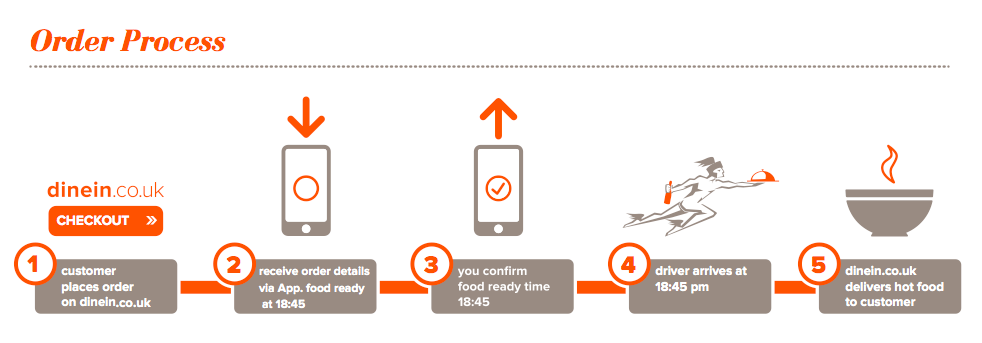
It was nearly a year to this day that I first spoke to Evan Graj, founder and CEO of London-based restaurant delivery startup Dine In. Taking time out from attending the NOAH conference where he’d been pressing flesh with VCs, externally at least, I found him to be in buoyant mood.
Not only was he confident of closing an imminent Series A round, but his company, which launched a year before better-known and much better-funded Deliveroo, had just acquired MyDeliveryCab, serving as the purpose for our call.
There is a serious lack of risk capital at the Series A level
He was also bullish about the startup’s now mature technology, talking up plans to begin deploying Dine In’s software and delivery fleet to other companies that needed to solve the local delivery problem.
Fast-forward to the past week, however, and during the many conversations I’ve had with Graj his mood has been in stark contrast. That’s because in August Dine In ceased trading.

The startup has officially entered liquidation, proving a text-book tale of a European startup that was chronically underfunded — as a reference point, Deliveroo raised more in its seed round than Dine In did for the entire four-year life of the company — and one that ends abruptly with an aborted sale to a major competitor and without the runway or appetite required from investors to raise further funding.
“There is a serious lack of risk capital at the Series A level. We found that there are funds which invest at the idea stage 30k to 100k, acting almost like angels, and then a huge gap until you hit the growth funds,” explains Graj.
“VCs might argue this case but speaking from an entrepreneur’s point of view they provide no feedback to help you along your way and are fundamentally risk averse. This is very different from our U.S. counterparts who invest on the basis of a successful business test case and solid micro economics.”
Do Adam Smith’s theories of competition not apply in Europe?
Furthermore, Graj says he found that U.K./European VCs were reluctant to invest not because Dine In was a bad business but because most local VCs can’t compete with the top two or three largest funds in the region.
This creates a “deployment of capital question rather than a solid business case question,” he argues, and a funding environment where whoever gets to Series A first becomes the company that VCs are inclined to back. “Do Adam Smith’s theories of competition not apply in Europe?” he asks rhetorically.
The first U.K. company in the ‘premium’ restaurant delivery space to get to Series A was of course Dine In’s nemesis Deliveroo, which raised £2.7 million (approx. $4m) in June 2014. It has since closed Series B, C and D rounds, totalling roughly $200 million in funding.

However, Graj is adamant that Deliveroo “did not kill Dine In” but that is was the dearth of European early-stage venture capital and an aborted exit that evntually snuffed out the company.
We knew acquisition was the best course of action
“Following Index’s investment [in Deliveroo] and then Accel, the VC funds that would get involved dropped off a cliff,” he says.
“Despite us being a bit smaller in order numbers to where Deliveroo were at, we had key restaurant relationships, were growing consistently, great tech but the main driving force was that funds were frightened of the follow on funding rounds required to scale this consumer business and having to compete with the larger funds”.
Amazon Prime and Uber entering the ‘on-demand’ delivery market also provided VCs pause for thought and an “excuse” not to invest in Dine In. But fundamentally it was the “lack of tier one-sized VC funds” in Europe that didn’t allow for competition. “Therefore we knew acquisition was the best course of action,” says Graj.
That eventually led to Dine In being approached in February by a major Internet company active in the online food space, and it’s my understanding that by April — and significant legal fees later — a sale had been agreed.
Then at the eleventh hour the deal unexpectedly fell through, leaving the restaurant delivery startup “high and dry” and its unnamed acquirer a “no-show”.
Adds Graj: “They backed out leaving us with a huge legal bill both for Dine In and myself personally, a huge debt to note holders, and no VCs to turn to. A hard lesson to learn and one I’ll be taking into my next venture.”